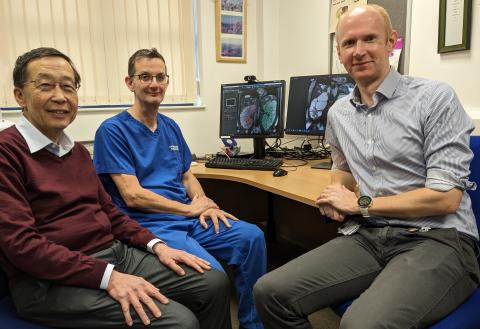An AI tool being used in Sheffield to predict kidney failure could be beneficial all over the world, according to NHS experts.
AI software at Sheffield Teaching Hospitals can provide an accurate and fast analysis of total kidney volume, which is a measurement used to assess the kidney lifespan in people with a condition known as autosomal dominant polycystic kidney disease (ADPKD).
Clinicians typically monitor this disease by tracing around kidneys and analysing enlargement on MRI scans.
While this process can take around an hour of staff time overall for each patient, the AI can have the results ready in under a minute.
Professor Albert Ong, a consultant nephrologist at Sheffield Teaching Hospitals, explained: “Our AI tool performed as well as the human expert analysts and did the job approximately six times faster.”

The AI was developed off the back of an algorithm trained by Sheffield Teaching Hospitals’ Dr Jonathan Taylor, which was tested using hundreds of MRI scans from a previous European research study.
“This tool will enable kidney clinics worldwide to measure kidney volume quickly and accurately,” added Prof Ong, who is also the trust’s clinical lead for genetics. “It will make the measurement of kidney volume possible at clinics where there is a lack of specialist expertise.”
ADPKD is thought to impact up to 70,000 people in the UK and is caused by fluid-filled sacs growing in the kidneys.
Predicting when kidney failure may occur is especially important for ADPKD patients as, once reached, the disease is irreversible and can only be treated via dialysis or transplant.
The impact of AI will be discussed at National Health Executive’s dedicated Digital Health event.
Register to hear insight from NHS leaders on everything from how AI can make the NHS more efficient, to the implications of a technology-enabled workforce.
Image credit: iStock



















